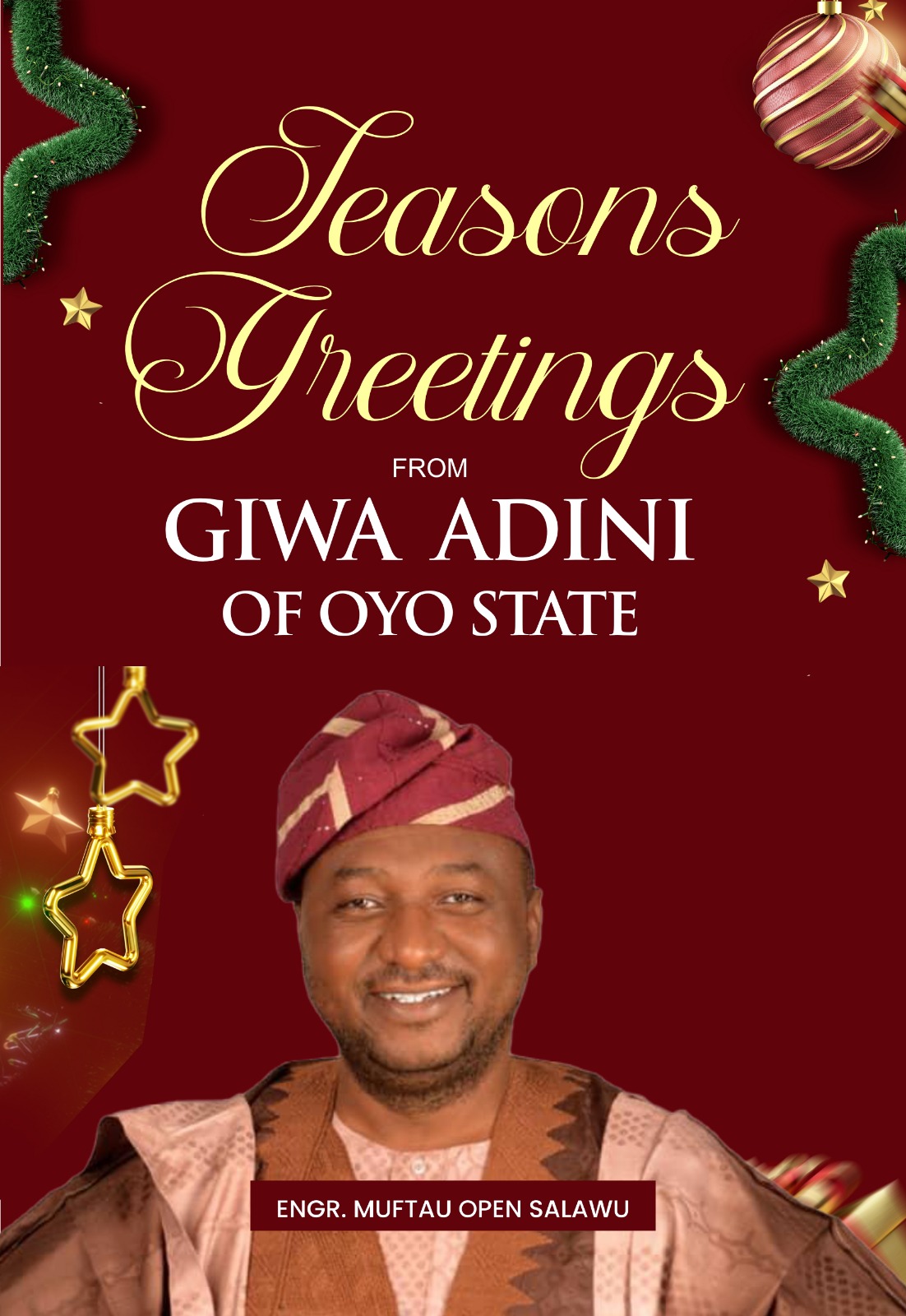Since Friday night that Oba Lamidi Olayiwola Adeyemi III joined his ancestors, there have been different write -ups on people’s perceptions of the late Alaafin depending on which sides of the divide each of the assessors stands in judging his actions, decisions on issues and his entire reign. His sudden passage not only brought an end to his 52 years’ old illustrious reign on the throne, the Alaafin died at age 83 on the throne at the Afe Babalola University Teaching Hospital, Ado-Ekiti, Ekiti State.
This is a mark of a new beginning for the people of Oyo and the Yoruba race in general. Oba Lamidi Olayiwola Adeyemi III was the longest – serving Alaafin of Oyo and his reign was eventful and full of intricacies. Having been privileged to know the Kabiyesi and work closely with him over the years, no single piece is sufficient to capture his parental background, ascendancy to the throne, personal accomplishments, challenges that characterized his reign and his contributions to the socio- economic and political developments in Nigeria.
Alaafin Adeyemi could be a perfect example of a gentleman and could, at other times, be brutal depending on the circumstance, his perceptions of the issue before him and other exigencies. To those that succeeded in currying his favours, he was among the best when it came to service to humanity and mankind, but to those who had been unfortunate to step on his toes, he was deadly and brutal. He was feared by both friends and foes for his unpredictability.
There were limitless adjectival phrases and eulogies that people used to describe his aristocratic background and the supernatural powers of the Alaafin, being a phenomenon. That is why the late Alaafin of Oyo was given names such as death, disease, infirmity and other nomenclatures that are associated with calamity. Yet, all these negative attributes were seen as a pride rather than being derogatory by a typical Oyo man.
Alaafin Oba Lamidi Adeyemi III was an excellent performer of oral Yoruba Poetry and as a poet and he was always at home with ijala renditions, panegyrics, ifa divination, liturgical Yoruba which is the language used among the diviners to express transcendent ideas. He was therefore adored by the traditional worshippers for his mastery of ifa divinity, mysticism, Yoruba folktales and folklores with perfect tonal resonance used in the traditional societies to access the powers of the spirits. That explains the reasons why the late Alaafin of Oyo was regarded a deity by some traditional worshippers.
Alhough, the Alaafin was not an academic scholar by certificate acquisition and academic qualifications, but by his research outputs particularly on Yoruba histories, African philosophy, politics, social development and cultural studies. He was indisputably an erudite scholar and public intellectual. Whoever has had the privilege of being close to him, will attest that he was a philosopher king, a universalist and a polemicist, all in one, having been blessed with an independent critical mind. Of course, Alaafin knew little about everything learnable.
Given his love for books, with the volumes of his book collections and his everyday desire to increase his collection of books across disciplines, I can say that he lived his life as a bibliophile. Before Alaafin’s palace was engulfed with inferno in 2013, the palace housed thousands of books across disciplines. The Alaafin was indeed a ‘walking library’ as he was being described by those that knew his intellectual ability. To some, he was an encyclopaedia of knowledge. In a recent tribute written by Dr. Festus Adedayo, he affirmed that “an apt analogy that can explain Oba Adeyemi’s passing is a huge library burnt down”. Similar to that was contained in a post on the social media by Prof. Adenike Akinjobi of the University of Ibadan where he described the Alaafin as “non- inheritable” mammoth knowledge in innumerable book volumes. In one video clip posted on the social media after the passing away of the Alaafin,he claimed boastfully in one of his public engagements that he has read virtually all books written by Prof. Wole Soyinka.
One other unique attribute of Oba Lamidi Adeyemi III was his deep sense of history particularly the history of the Yorubas. In his leizure hours, Alaafin loved discussing the works of great authors. Of course, he was a book analyst and reviewer. It was his analyses that motivated and prompted my acquisition and reading of books such as: The Prince by Machiavelli, 24 Laws of Power by Robert Greene, The Man Died by Prof Wole Soyinka, Plato’s Republic by Plato, Ayinla Omowura by Dr. Festus Adedayo, History of Yoruba by Samuel Johnson among classics.
He fought many battles to protect the Yoruba interests and hegemony in Nigeria nation-state. In 1975, he wrote a book titled “Yoruba chieftaincy institutions and modernity”. Looking through the contents of the book, Kabiyesi proved to be truly a great historian. By deeds, actions, utterances, dressing habits and ways of life, he successfully showcased the Yoruba culture, values and norms throughout his reign beyond the shores of Nigeria. With his manners of defending the unity of Yoruba and our cultural practices, Alaafin Oba Lamidi Olayiwola Adeyemi III would be remembered to have succeded in making Oyo the citadel of Yoruba culture and tradition. Again, he exuded opulence and royalty with a blend of Yoruba traditions, modernity and western civilization.
Despite the politicization of the affairs of the Council of Obas and Chiefs and the undue government interference in the activities of the Obas in the state, Alaafin was, throughout his reign a dominant force. Even when there were attempts to introduce rotation of chairmanship of Oyo State Council of Obas and Chiefs, Alaafin used his ingenuity, craftiness and power of diplomacy to retain permanent chairmanship of the council till he died.Looking at his official headings, public references and palace protocols,it is evident that late Alaafin of Oyo took delight in defending the royal paramountcy by paying high premium to his position as the Permanent Chairman, Oyo State Council of Obas and Chiefs despite the contrary fiat and government proclamation on the matter. When modernity and modernization seemed to have usurped the hitherto absolute powers and authority of the traditional rulers, the Alaafin of Oyo stayed afloat using Yoruba diplomacy. What he could no longer achieve using power of cohesion and brutal force he asserted during the primitive age, Alaafin was able to sustain his social relevance against all odds.
Most times,he deployed power of diplomacy, sphere of influence and circles of friends across the global geo-political and cultural boundaries to fight his wars and to protect his hegemony. What often endeared the late Iku Baba Yeye to anyone included resourcefulness, knowledge, skills and wealth. Once you were identified by Alaafin to have possessed any of the enumerated values, you automatically become his friend.Among the traditional rulers in the country,his understanding of theory of elitism and power politics is second to none.
For the purpose of insight, my closeness to him was accidental because we never shared the same ideology and political interest until 2012 when I delivered a lecture as a guest speaker during the Annual Oyo day held at Ladoke Akintola University of Technology Ogbomoso during the tenure of Prof. Niyi Gbadegesin, the then Vice- Chancellor. After my presentation on the topic “Yoruba traditional institution, Yoruba Leadership Questions and the Alaafin as the custodian of Yoruba culture, Alaafin being the father of the day pat my back and appreciated my presentation. Since then,we became close and intimate. Sequel to the development, Kabiyesi gave me access to the palace. Whenever I visited his palace, it was always like attending a seminar on Yoruba history, culture and tradition. Each time I had the priviledge of being with the Kabiyesi in his study, what often dominated our discussions were most times the works of great anthors, analyses of speeches of the great leaders in history and issues of national development.
Other distinguishing attributes of the Alaafin were his rhetorical communication and writing skills. Whenever he delivered public speeches, they were often enriched by philosophical quotes, apt referenced to historical events with dates and copious citations from great classics. No doubts, the late Alaafin of Oyo was an orator, a prolific writer, a political strategist and a tactician. I must not pretend that the Alaafin is unerring, being a human being, Glaringly, he was not infallible. He has his flaws like everyone of us. Like his forebears, he lived the life of a polygamist having had eighteen (18) wives and more than twenty (20) children and grandchildren. One other notable attribute of the late king was his love for sport particularly boxing – a skill he had dramatically displayed several times in public. He was said to be a boxer before ascending the throne.
To some people,he was a controversial figure with several disposed, pending and ongoing cases in courts of different jurisdictions particularly on land matters and chieftaincy disputes. When Athe Alaafin was reigning as the Imperial Majesty of Oyo,he won many legal battles,while he lost several others.A popular social media influencer under the pseudonym ” Odulaye Baa Waki Aremu ” admitted recently in a post that “though I never did like the Iku and I never for once loved his sugar-coated mouth too. But I have fully accepted it long ago that he was a necessary evil and from that standpoint- I thus declare that the departed Alaafin shall be sorely missed.” Suffice to say that- in this one king alone, we ‘ve all lost something tangible and some other things somewhat intangible.The Alaafin was an hero to those that loved him and positively affected by his reign and he was a villain before the people that had suffered and fell prey of his huge powers. May his soul rest in peace.
Rahaman Onike, writes from Oyo town, Oyo State.



















